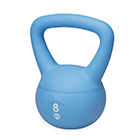POPSUGAR
Trending Stories
Spotlight
Introducing
01/01/1970
The Beauty Sustainability Challenge
These tiny (and expert-backed) tweaks can help you live a more sustainable lifestyle.
Read More
Every editorial product is independently selected by our editors. If you buy something through our links, we may earn commission.
:extract_cover()/2024/04/12/820/n/1922729/tmp_sSI6XI_fe25edd5186c0f58_Main_PS24_04_Identity_YoungPeopleDiagnosedWithCancer_1456x1000.jpg)
:extract_cover()/2024/04/16/728/n/1922729/tmp_75b30W_89ba11e63315cb85_Main_PS24_04_Identity_FlaujaeJohnson_1456x1000.jpg)
:extract_cover()/2024/04/16/952/n/1922441/92d5a354661ef2d75a2221.02689297_.jpg)
:extract_cover()/2024/04/16/907/n/1922283/tmp_ISyHrU_e0490ceddb7707eb_Main_PS24_Juntos_SelenaQuintanila_1456x1000.jpg)
:extract_cover()/2024/04/15/892/n/1922441/7c3ebf5c661d8d22cc3205.20465363_.jpg)
:extract_cover()/2024/04/11/917/n/1922153/6e834c1566184f853f2673.07667178_.jpg)
:extract_cover()/2024/04/16/716/n/49351082/931e50cb661ea341b35388.06279410_.jpg)
:extract_cover()/2024/04/18/825/n/3019466/58d5ede666216b2863d248.87443275_.jpg)
:extract_cover()/2024/01/19/993/n/1922794/99e2f79e65aafca3d1e977.96984305_.webp)
:extract_cover()/2024/04/16/703/n/1922441/6b977a7a661e9eb704a4b3.28665086_.jpg)




:extract_cover()/2024/04/12/029/n/1922283/283c35b26619c6d033b245.43898085_.jpg)
:extract_cover()/2024/04/08/719/n/1922283/d57fb6146614184bb71c53.56063776_.jpg)
:extract_cover()/2024/04/03/788/n/1922283/46af8965660d97e61b9094.44808590_.jpg)
:extract_cover()/2024/03/18/856/n/1922283/tmp_ZRWhy9_a4df95a36d0af8ec_Cristina_Escobar_TEDx_IMAGE.Headshot.png)
:extract_cover()/2023/04/11/971/n/1922564/1fcc87c16435dcbb2f4d50.95099014_.jpg)
:extract_cover()/2024/04/19/804/n/1922564/4d7e6f236622b55e77c414.64981311_.jpg)
:extract_cover()/2024/04/18/222/n/1922564/e733ca466621f0e82d79e8.39956090_.jpg)
:extract_cover()/2024/04/18/895/n/1922564/daed886a662182c9d99180.67342283_.jpg)
:extract_cover()/2022/06/21/795/n/1922153/d08d57eb62b2085f4fbb83.41011483_.jpg)
:extract_cover()/2023/03/30/893/n/1922153/0e55e6806425f06a3d1c08.30680732_.jpg)
:extract_cover()/2024/04/19/808/n/1922153/3d392bd16622b6c5aecca5.97349179_.jpg)
:extract_cover()/2024/04/16/969/n/1922153/615d81d6661ef87dec98d9.13857227_.jpg)
:extract_cover()/2024/04/19/991/n/1922729/5065edd96622f46c092669.32442645_.jpg)
:extract_cover()/2024/04/19/944/n/1922729/c443d1e76622e4b0d8ad87.93516067_.jpg)
:extract_cover()/2023/10/16/903/n/3019466/3635779a652d9fbaec4c67.21205141_.jpg)
:extract_cover()/2023/04/28/909/n/1922441/1c27bcca644c31844c3516.01183892_.jpg)
:extract_cover()/2023/06/12/759/n/24155406/ac6d52be64875255c23b50.75101623_.jpg)
:extract_cover()/2024/04/18/970/n/24155406/5d47842b66219c1723fa58.96365937_.jpg)
:extract_cover()/2024/04/18/860/n/24155406/e38bd8b3662176c7537292.55165264_.jpg)
:extract_cover()/2024/04/17/751/n/24155406/5ec832d7662000a7ba1508.81062093_.jpg)
:extract_cover()/2024/04/19/768/n/1922153/05c2f1ba6622a968ed4fb4.66888759_.jpg)
:extract_cover()/2023/04/07/730/n/1922153/eeb3b5b5643045a239ce00.26727131_.jpg)
:extract_cover()/2024/04/18/926/n/1922794/3cd1c8d066218d4c605931.45653842_.png)
:extract_cover()/2023/11/06/708/n/1922729/f2f06b4465490dae537863.12121381_.jpg)
:extract_cover()/2024/04/17/916/n/38761221/a8fd68ce6620382b5ab914.64298852_.jpg)
:extract_cover()/2024/04/17/874/n/1922441/f49347c566202a11608a85.65290916_.jpg)
:extract_cover()/2022/06/28/843/n/47518575/fd0b194562bb52f4332690.03943812_.jpg)
:extract_cover()/2024/04/15/867/n/1922729/abe43370661d84de7b0612.83001200_.jpg)